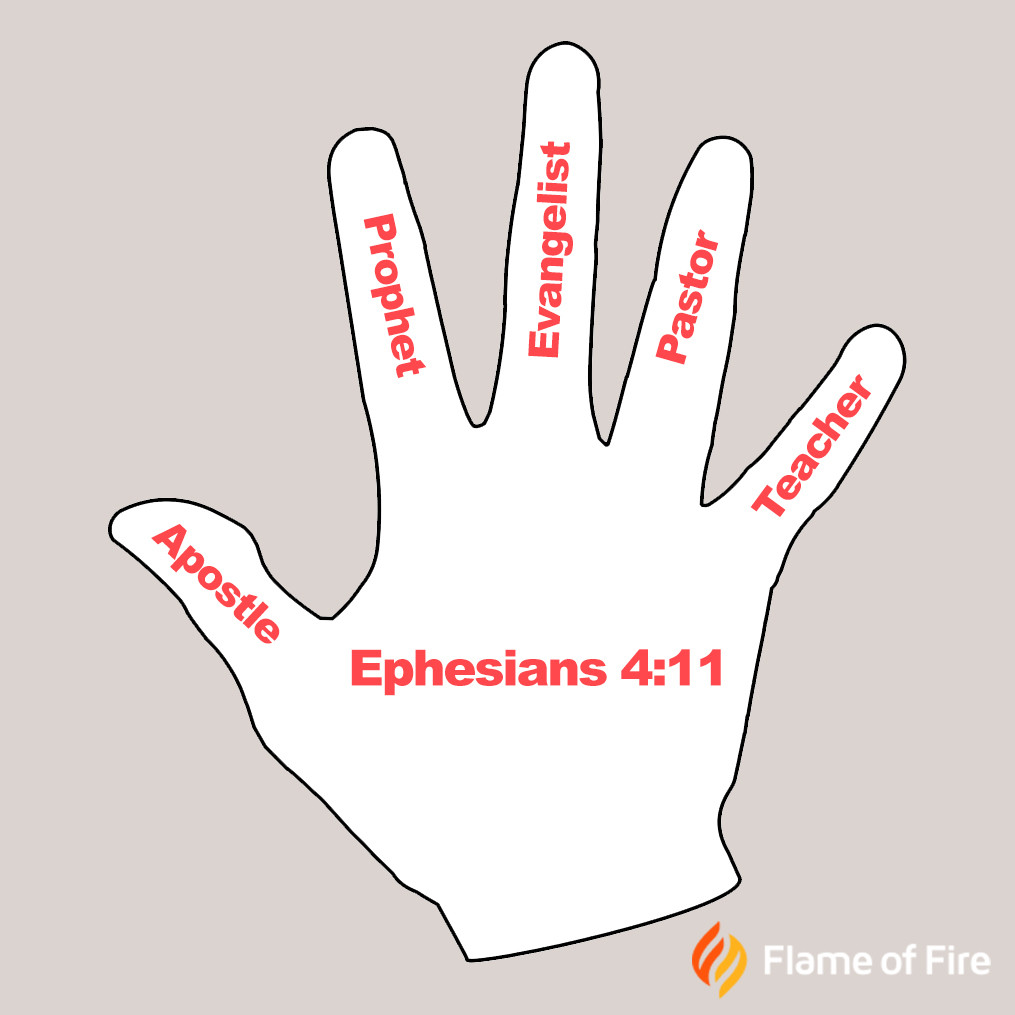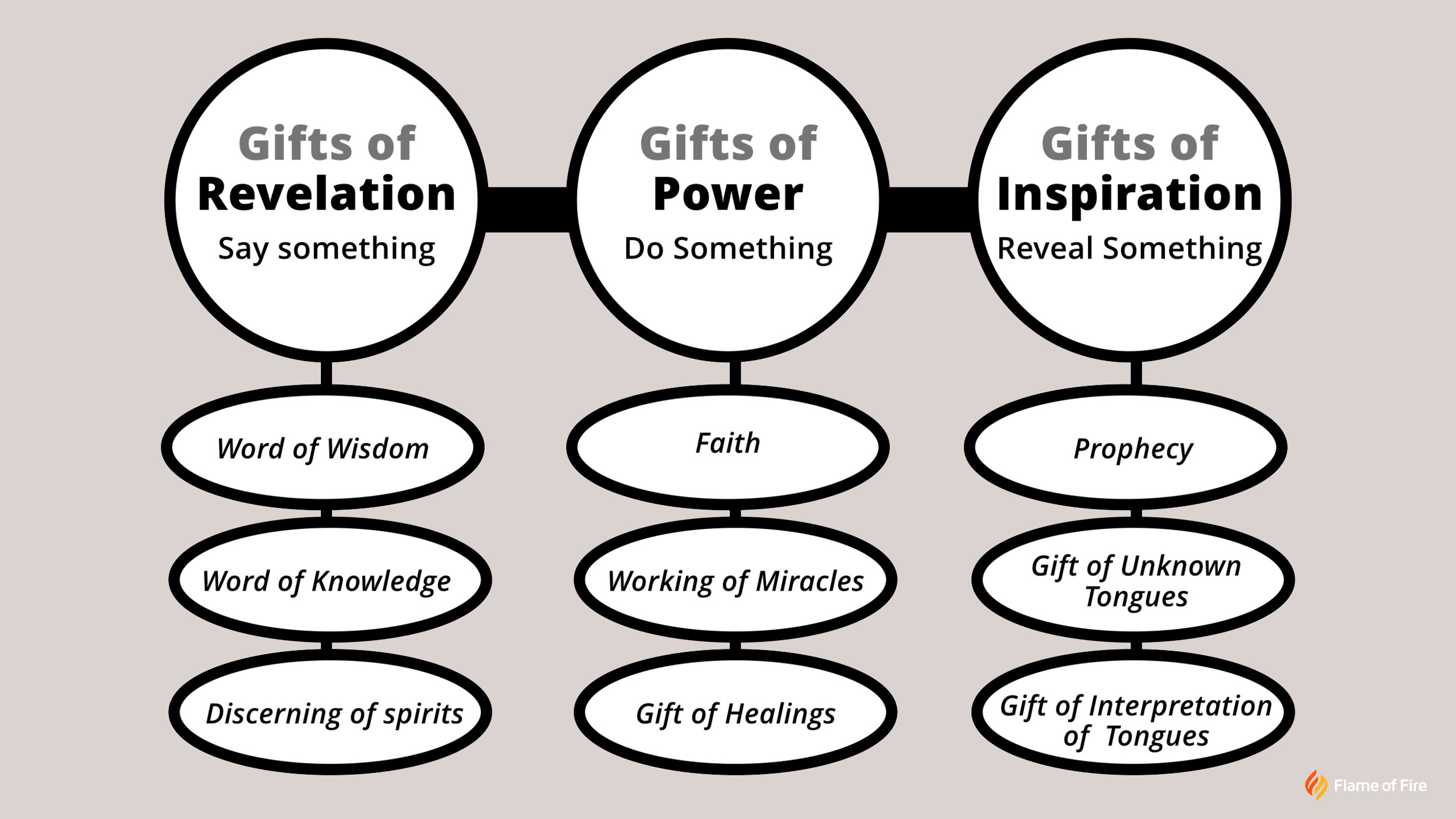Ephesians 4:11 speaks of essential roles within the Christian church, often referred to as the 5 Fold Ministry Gifts. These aren’t just historical positions; they are vital functions for the health and growth of the body of Christ today. But what exactly is the five-fold ministry, and what are these distinct roles?
This article will delve into the five fold ministry gifts – apostles, prophets, evangelists, pastors, and teachers – as outlined in Ephesians 4:11. We’ll explore each role, understand their purpose in equipping the church, and see how these gifts of Christ are crucial for believers in the modern world.
Decoding the Five Fold Ministry: Equipping the Saints
The core purpose of the five-fold ministry is clearly stated in Ephesians 4:12: “to equip his people for works of service, so that the body of Christ may be built up.” This highlights that these roles aren’t meant to do all the ministry themselves, but rather to empower every member of the church to participate actively in God’s kingdom work. Imagine a body where each part is functioning as it should – that’s the picture of the church working together, with each person contributing their gifts and callings. God desires everyone to come to a full understanding of truth and experience salvation (1 Timothy 2:4), and the five-fold ministry plays a key role in this.
Ephesians 4:11-13 (NIV) “So Christ himself gave the apostles, the prophets, the evangelists, the pastors and teachers, to equip his people for works of service, so that the body of Christ may be built up until we all reach unity in the faith and in the knowledge of the Son of God and become mature, attaining to the whole measure of the fullness of Christ.”
To deepen your understanding of ministry and these roles, consider exploring resources from ministry schools.
Are Five Fold Ministry Gifts Different From Spiritual Gifts?
It’s important to differentiate between the five fold ministry gifts and the gifts of the Spirit. The five-fold ministry gifts are specific roles or offices given by Jesus Christ (Ephesians 4:11), while the gifts of the Spirit (1 Corinthians 12:7-11) are abilities and empowerments available to all believers through the Holy Spirit.
Think of it this way: the five-fold ministry equips believers to effectively use their spiritual gifts. Spiritual gifts are freely given to every believer who trusts in Jesus Christ. The Bible encourages us to “Pursue love, and earnestly desire the spiritual gifts, especially that you may prophesy” (1 Corinthians 14:1). These gifts are for everyone to operate in.
The 5 fold ministry gifts are leadership roles designed to nurture and guide the church so that all believers can effectively function in their individual spiritual gifts. There’s a distinction between holding an office in the five-fold ministry and simply operating in a spiritual gift.
Understanding the Roles within the 5 Fold Ministry
Let’s examine each of the five fold ministry gifts in detail:
Apostles: Pioneers and Church Planters
An apostle is essentially someone commissioned and sent out by God to proclaim His message. They are often pioneers, venturing into new territories to establish churches and ministries. Historically, apostles and prophets often worked in tandem, laying foundational groundwork.
Apostles are also tasked with equipping others for ministry. The term “apostle” has roots in Roman governance. When the Roman Empire expanded, apostles were dispatched with a “kingdom mindset” to influence and transform newly conquered cities.
Apostle Paul: A New Testament Example
Apostle Paul is a prominent figure in the New Testament. Originally known as Saul, a Pharisee who persecuted Christians, his life took a dramatic turn on the road to Damascus (Acts 9). Encountering Jesus Christ changed Saul’s life, leading to his name change to Paul and his transformation into a powerful apostle. Paul authored a significant portion of the New Testament, writing fourteen books, demonstrating the profound impact of the apostolic ministry.
Prophets: Voices of Divine Truth
A prophet’s primary role is to communicate God’s word and truth. Prophets receive and deliver messages from God, intended to guide, correct, and prepare God’s people. They often speak to edify, exhort, and comfort (1 Corinthians 14:3). Intercession is another key aspect of a prophet’s ministry, as they stand in the gap and pray for individuals and situations. Prophetic ministry can encourage church members and leadership, offering divine perspective and direction.
Evangelists: Gatherers and Gospel Proclaimers
Evangelists are passionate about sharing the gospel with those who haven’t heard it. They are “gatherers” of people, effectively communicating the message of salvation through preaching and teaching. Evangelists possess a strong desire for discipleship, guiding new believers in their faith journey and integrating them into the church community. Their focus is outreach and expanding the reach of the Gospel.
Pastors: Shepherds of the Flock
Pastors are the shepherds of the local church, responsible for the spiritual well-being of their congregation. Like a shepherd tending to sheep, pastors care for the needs of their flock, providing guidance, support, and protection. Teaching and preaching are also integral to a pastor’s role, often delivered through sermons and Bible studies. Pastors are the guardians of the flock, ensuring their safety and spiritual nourishment.
Teachers: Illuminators of God’s Word
Teachers are skilled in instructing others in the deeper truths of God’s Word. They excel at breaking down complex biblical concepts, making them understandable and applicable. Whether in Bible study settings or from the pulpit, teachers illuminate scripture. Equipping believers to study the Bible independently is also a crucial aspect of their ministry, fostering spiritual growth and biblical literacy within the church.
The five-fold ministry functions optimally when each role is recognized and valued. Each gift contributes to the overall health and effectiveness of the church, enabling it to fulfill its mission in God’s kingdom.
Are Five-Fold Ministry Gifts Still Relevant Today?
Absolutely! The five-fold ministry gifts are not relics of the past; they are essential for the church today. Just because we may not always see these roles in full operation doesn’t diminish their validity or necessity. The church today needs apostles, prophets, evangelists, pastors, and teachers just as much as the early church did.
 What is the five fold ministry? Hand of God on the earth.
What is the five fold ministry? Hand of God on the earth.
The Five-Fold Ministry as a Hand: A helpful analogy is to visualize the five-fold ministry as a hand:
- Thumb (Apostle): Versatile and able to assist in all functions.
- Pointer Finger (Prophet): Provides direction and guidance.
- Middle Finger (Evangelist): Has the longest reach, extending the Gospel far and wide.
- Ring Finger (Pastor): Dedicated and committed to the care of the sheep (church).
- Pinky Finger (Teacher): Brings balance and thoroughness to the body.
If you’re seeking a church that values and operates in the five-fold ministry, you can find many congregations that embrace these roles.
In addition to the five-fold ministry, the gifts of the Holy Spirit are also active and vital today. These gifts, listed in 1 Corinthians 12:7-11, empower believers for ministry and building up the church.
 9 Gifts of the Holy Spirit split in 3 categories: Revelation, Power, Inspiration
9 Gifts of the Holy Spirit split in 3 categories: Revelation, Power, Inspiration
The Nine Gifts of the Holy Spirit:
Revelation Gifts:
- Word of Wisdom
- Word of Knowledge
- Discerning of Spirits
Power Gifts:
- Faith
- Gifts of Healings
- Working of Miracles
Inspiration Gifts:
- Prophecy
- Speaking in Tongues
- Interpretation of Tongues
Conclusion: Embracing the Five Fold Ministry for a Thriving Church
In conclusion, the 5 fold ministry is a crucial framework for a healthy and functioning church. Each role – apostle, prophet, evangelist, pastor, and teacher – is essential for equipping believers to effectively use their spiritual gifts and contribute to the body of Christ. While not everyone is called to one of these specific offices, every believer is called to share the gospel. As we proclaim the message of Jesus Christ, we are told that signs and wonders will follow (Mark 16:17-18), demonstrating that every believer can operate in spiritual gifts to reveal Jesus and His Kingdom. When all parts of the body work together, empowered by both the five-fold ministry and the gifts of the Spirit, the church can accomplish great things for the kingdom of God.
If you know someone exploring faith, share resources that address foundational questions like “Is God real?” or “Does God forgive all sins?”.

